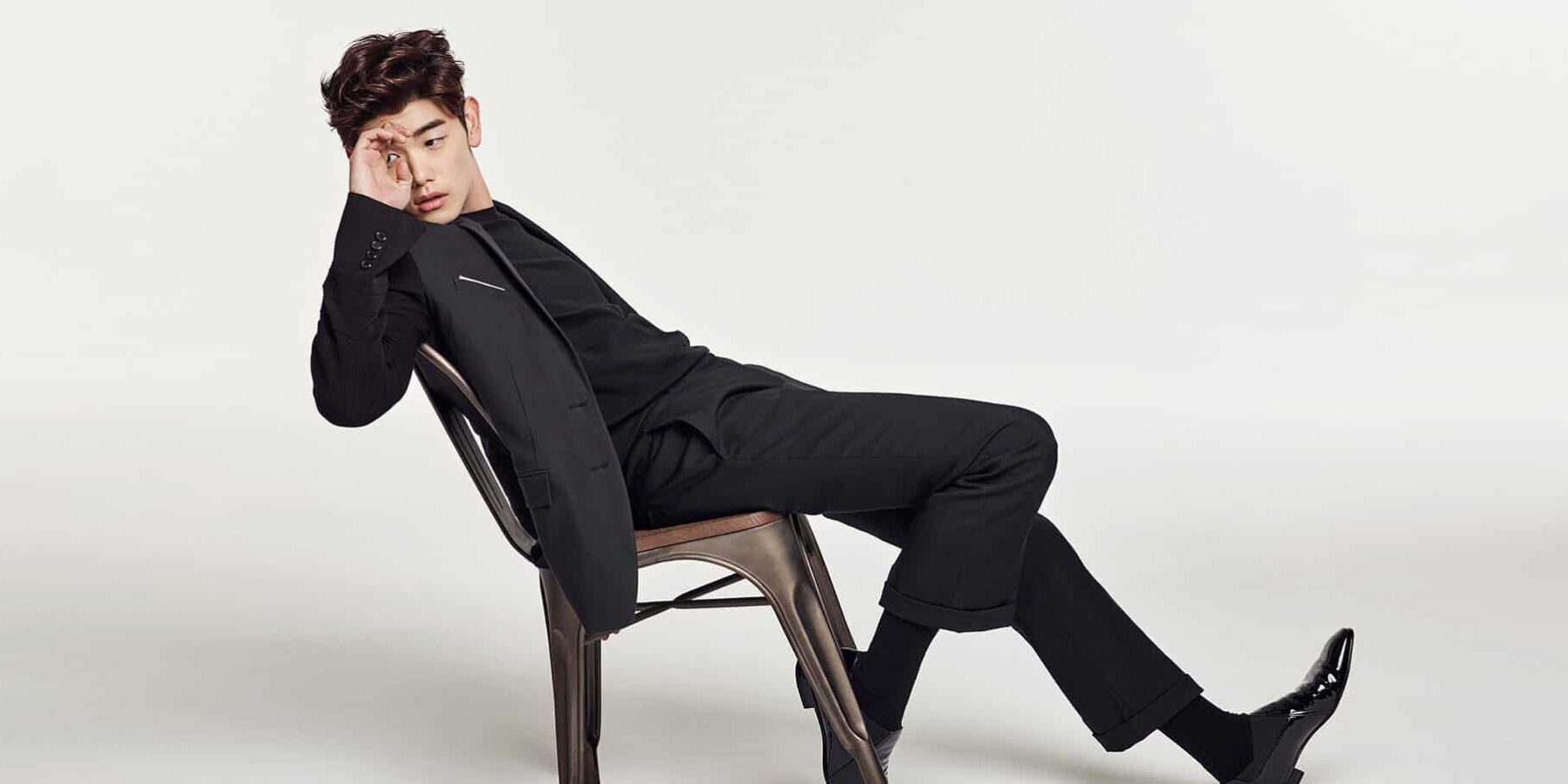
If anyone is a cross-cultural bridge builder, it’s Eric Nam. Since his debut in 2013, the multifaceted singer, songwriter and TV host has been engaging all of us around the world! It’s not only through the talent of his music and gift of conversation that he’s put Korean Americans in the forefront.
Eric Nam has created inviting spaces on his platforms, making meaningful connections across the globe as a Korean American artist and influencer. Dive Studios, which he co-founded a couple years ago with his two brothers, has become the leading podcast production company for anything K-Pop, bridging multicultural audiences with its expansive podcast productions.
Earlier this year, Dive Studios launched an app called Mindset, laying out the groundwork where international celebrities and artists are empowered to convey their impactful stories of meaningful transformation.
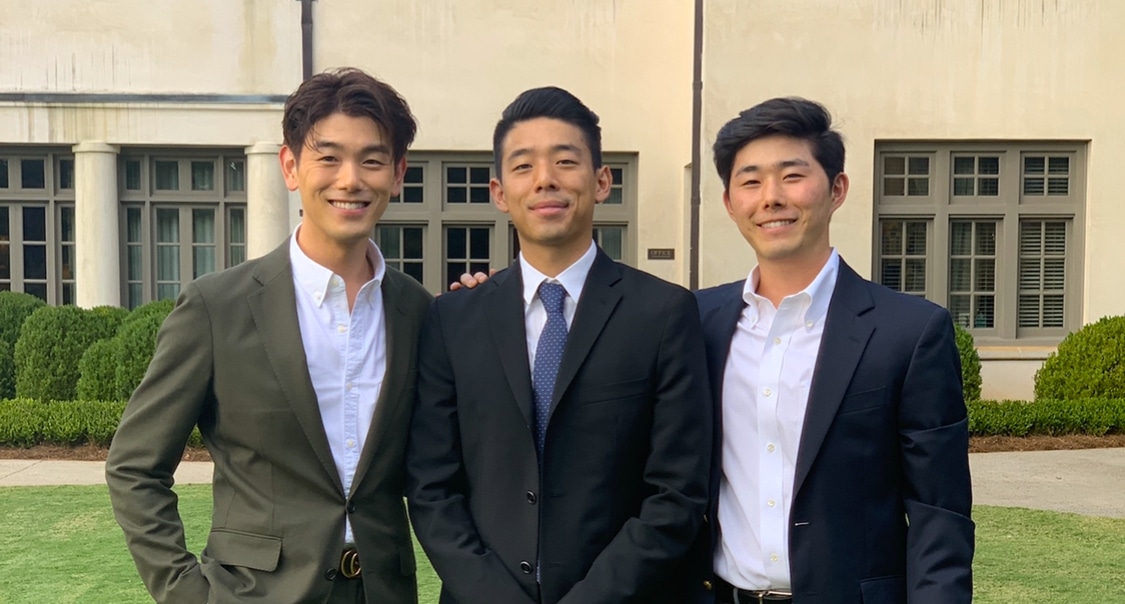
If that’s not all, Eric has been an ambassador for the entire AAPI community. Following the Atlanta tragedy in March, he addressed anti-Asian racism in a powerful and deeply personal article for Time Magazine, sharing the challenges he faced growing up as a Korean American in Atlanta, his hometown. Furthermore, Eric talks openly about mental health and stigma in his interviews and through his platforms by Dive Studios.
It is no wonder that Eric Nam is being honored with the Embrace Unity Award by the Council of Korean Americans at its 10th Anniversary Celebration Gala in October. In commemoration, I had an exciting chance to interview him recently. I’ve been a fangirl (which has no age limits) and admired Eric for a long time, especially for speaking out about mental health which validates my work as a licensed mental health clinician serving Asian Americans. I hope he enjoyed our interview as much as I did!
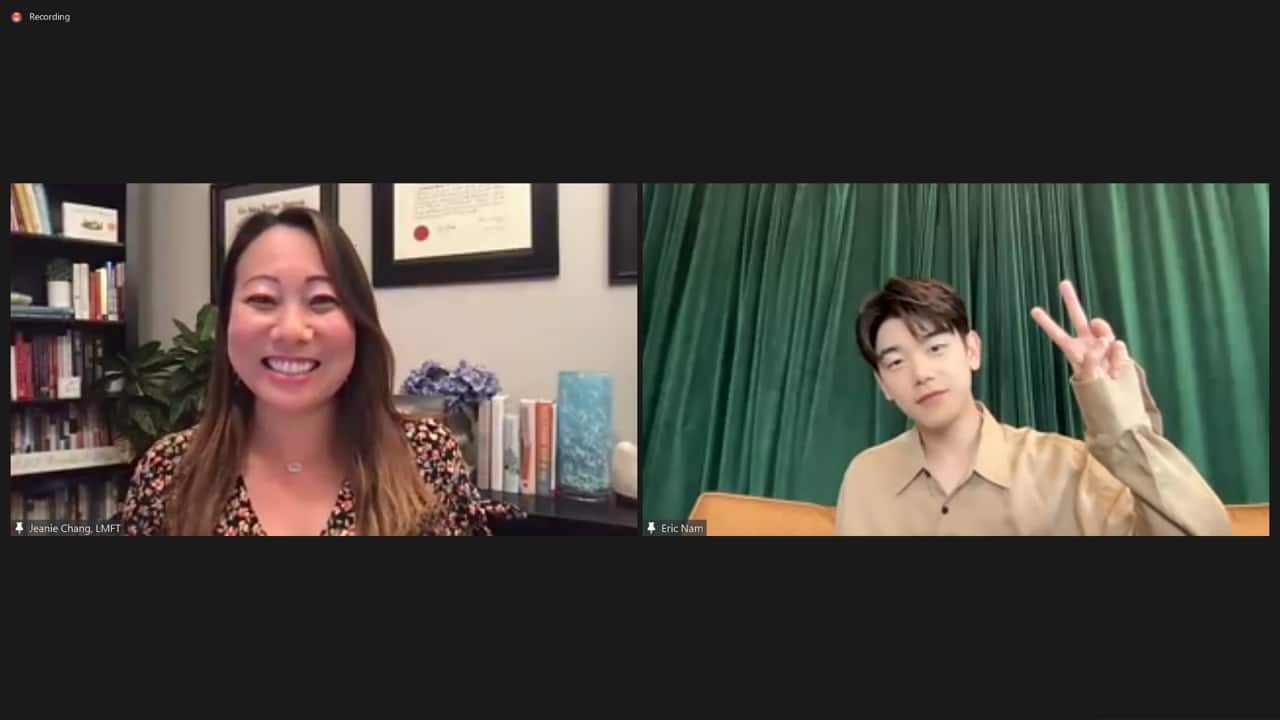
Jeanie Chang: In your article for TIME, you refer to specific and even traumatic experiences from your Korean American upbringing. How do you think times have changed?
Eric Nam: Yes, I think it is changing. Is it enough? No. I think the ways in which that it has changed is that representation has marginally increased. I think little by little we’ve seen and started to normalize seeing people like us on TV and in music and in places that traditionally felt out of reach and closed off to us or from us. So in that aspect, I think it is slowly starting to change.
When people become more familiar with people like us, Korean Americans or Asian Americans, it makes it a lot easier for us to imagine, for us to dream, for us to strive to be in positions that are influential. So again, I think there’s more to be done and that’s why it’s a challenge, but also really exciting.
Jeanie Chang: What do you hope to see change because we all have hopes, right?
Eric Nam: When I was asked to write that piece for Time, I wanted to say no because I feel like there was an incredible weight and it felt like; in Korean it’s called “boo-dam” which translated directly is burden. Obviously, first – it’s a very emotional and sensitive topic and I haven’t written a piece like that ever before.
Second, because I think our voices and the opportunities that we get as a community are very scarce. So when one person chooses to say something and represent potentially a community, there’s an incredible amount of weight that is on your shoulders. I think that was what I was kind of afraid of. I felt like I was representing the entire Asian American or Korean American community, but it was something that I didn’t know if I had the right or if I had the ability or capability to do.
There was a lot of introspection like am I the right person to write a piece like this? But I think what got me to actually write it was the thought that these are the opportunities and the moments that we have to undertake, even if they are incredibly weighted and burdensome, and to do them well because these are the opportunities that open doors and allow for conversation, allow for dialogue.
I think that was when I was like, “Okay. I’m not going to sleep for the next 24 hours, but I’m going to do it because it’s for the greater good and I have to put it out there with the best intentions. I have to trust that when I put something out that the people of the community will be more, how do I say uplifting and kind, in terms of the way they approach it even if I make a misstep. That’s what honestly went through my head.
It was terrifying to put that piece out there. But I did it hoping for change, hoping to enact and be a catalyst for positive change and impact that I think we so need, especially for our community. What I’m hopeful for is that we start to find and encourage Korean Americans, Asian Americans to take positions of influence, to dream and envision themselves in positions of power or in places that we’ve traditionally been under or misrepresented. I think this allows us to really hope that we can create the world in which we are all the same, and in which we are all provided the same opportunities just like everybody else.
Jeanie Chang: Thank you so much for sharing so honestly. So what was the response like afterwards?
Eric Nam: It was what I wanted and hoped for. It was really hard for me to write this. How do you start writing about something that was a horrific incident? I really don’t cry, but I was a mess. Trying to deal with the emotional stress of it was one thing. The second thing is I didn’t know how to put into words, how to verbalize what I was feeling because of microaggressions or the things that we’ve grown up with and just internalizing that.
You don’t really know that you’re dealing with all these things until you take a step back. And then it’s like, “What are we going to break down?” So, it was really hard to put that into words. But it was also something that was dap-dap-heh (Korean for suffocating) because I wanted to get all that out, and I just didn’t know how.
So when I got it out there and got a lot of affirmations from people who are like, “I completely understand or feel or can see what you’re trying to say, and I feel heard and seen.” That to me was an incredibly reassuring and validating moment. I was really glad that I did the piece. Obviously with any piece of work, be it music or writing or movies or whatever, you always have your critics. But for me, I felt like the good definitely outweighed any sort of negative reaction.
Jeanie Chang: That’s awesome. I appreciate you sharing that. I know we started with the heavy questions! Anything else you wanted to add before we move on to K-Pop?
Eric Nam: These opportunities continue to come about for our people and for our community. To just encourage people to utilize opportunities as best as possible and to think about the greater community at large. It is scary, it is terrifying. But I also think that we as a community have to be at a position where we accept members of our community with grace, where we offer people grace to make mistakes and say that it’s okay to not do it perfectly, but to acknowledge that we’re trying.
It is better to try and make a little bit of a mistake than to not try at all, and that’s what I think I wanted to get out there. To encourage anybody who may have felt or is feeling the way I felt about writing a piece or being very vocal about this or pursuing things that you may have dreamed of.
Jeanie Chang: I love that. Giving one another grace. Let’s switch gears now and talk about your career. I love the term that you use, “reverse engineering” your success in Korea to here in the U.S. and that it’s been a goal of yours. How have you done this?
Eric Nam: I think I’m still in that process and there is no answer. I’m just figuring it out as we go with my team. It’s a challenge but, long story short, I felt like I had to go to Korea to be given an opportunity. This is literally almost ten years to the day when I first came to Korea to be on this audition program. Ten years ago there were very few Asian Americans on TV, film anywhere. Then in music, even harder to find and so people are like why did you choose Korea? I was like, well that was the only place that I felt I had any sort of chance or shot at pursuing music.
I still remember American Idol where I was like, oh my gosh an Asian dude got to the top 50! I was like this is not going to work out for me here. I ended up in Korea and I’ve done this here for the past ten years. But I think for me the dream and the goal was always to try to create a career or make an impact in music or entertainment in the States where I was born and raised; to be able to sing and dance and do whatever in English, which I considered my native tongue. If I can make it in Korea barely speaking Korean when I got here, imagine what you can do when you are fully enabled in your mother tongue.
Over the past ten years as I was building a career in Korea, I was trying to figure out ways into the Western market and being very strategic in terms of how we plan tours and going about it in a very American way. So, very early on, even business deal-wise, going at it playing ball in an American way. Even though I’m bigger in Asia or in Korea, we can get assimilated into a system where it’s easy to work with me and us. I guess that’s the best way to phrase it.

Right now, we’re still figuring it out. I still think we need more Korean American, Korean, Asian, Asian American faces on Billboard and on MTV or the radio or whatever. BTS, Blackpink, I love them to death! I really do, but I want more. I want to find Korean Americans, Asian Americans who can come up in that system as well. So, there is no answer. I just don’t think I’ve figured it all out, but your love and support is very necessary and appreciated!”
Jeanie Chang: I don’t know if you ever Google yourself, but you’re listed as a Korean American singer songwriter artist, but then when you see the other K-Pop stars that could crossover from Korea to the U.S, they’re referred to specifically as South Korean. I think that’s interesting because personally speaking, it looks like you have reverse engineered.
Eric Nam: It’s a very fine line to walk and thank you for thinking that we’ve already done it. New music coming soon, everybody! I think it’s a work in progress. As a Korean American, I’ve come to terms with, and I feel like most people can understand this, being a third culture kid. We don’t fully belong in Korea, we don’t fully belong in the States, but I feel like we all belong to each other.
We all share that communal experience of being out of place; that is our bonding kind of thing that we can all gather around. For me, it’s to look at that and say this is a unique upbringing, unique perspective; one that really balances what I like to think is the best of both cultures and worlds. We’re in a very special position to straddle East and West and make the most of it. Not just for ourselves, but for everybody else to bring these people together, all these different cultures and interests together.
I think for a long time I thought maybe it was a hindrance on what we can achieve and what we can do. But now, I flip it on its head, and I see that we’re like the ‘dark horse.’ We’ve got that special juice that we can make it happen. That’s why I’m very proud to be Korean American.
Jeanie Chang: That’s super cool hearing you say, “dark horse.” Speaking of which, you’re not just a singer/songwriter or artist, you host all these podcasts, you’re a television host, radio host, you’re on camera interviewing American celebrities, international celebrities. How do you showcase your Korean American identity and let it shine as you’re playing all these roles?
Eric Nam: I think we’re in a special situation where we understand that we have a hand in two separate worlds, and people are so interested in the two worlds that we are in. Korea is an incredible place with cultural things like food, skincare, music, movies, technology, fashion. Literally everything out of Korea is so amazing. But then there’s also a fascination with American celebs and movies. It’s like putting these two soft cultural powerhouses together like a Big Bang and incredible things happen. I’m very blessed and fortunate to be sitting right in the middle of those two worlds.
When I am doing interviews, or on TV shows or doing cool projects, I think the biggest thing for me is to know your audience – who are you catering to, who are you speaking to and who are you working with and what makes them most comfortable. Identity wise, for a long time, I was like, what am I? I didn’t know how I should behave.
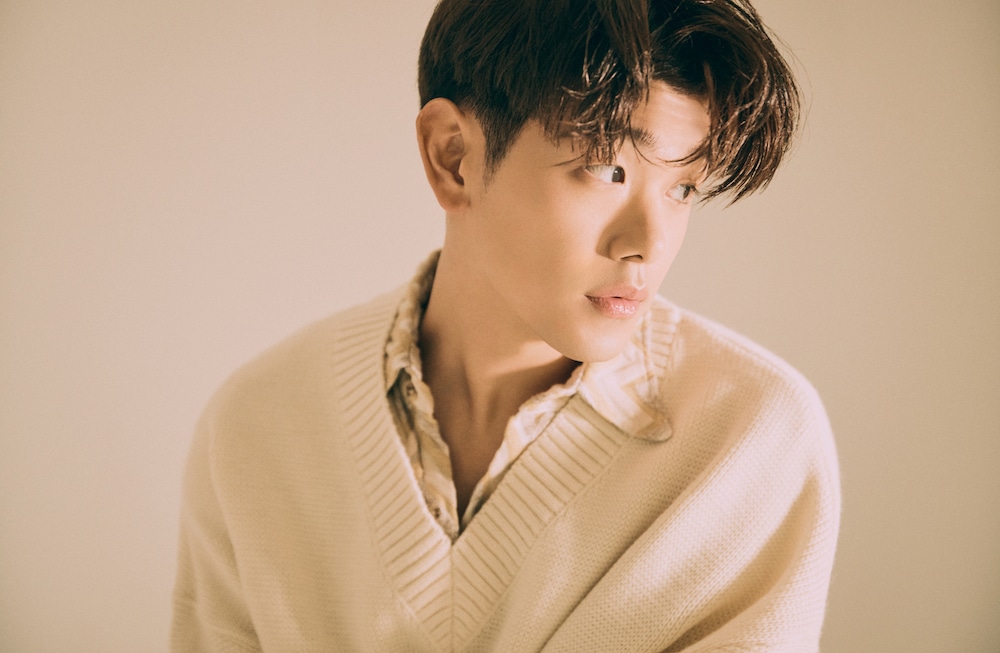
I felt a chameleon and I wasn’t being an authentic person. But being a chameleon and being able to code switch back and forth; that is my authentic self! That is my incredible superpower that I can talk to Will Smith and Robert Downey, Jr., and then have a full conversation in Korean to talk about the U.S. market. I think being my most authentic self in whatever situation is what I’m very grateful for. I think that’s what allows me to take every opportunity and maximize it to the best of my ability.
Jeanie Chang: It’s super cool to be Korean American these days. What is your perspective on how Korean media culture– like K-pop, K-dramas, Korean films, etc. has taken off and been dominating around the world?
Eric Nam: I think I agree with you that it’s taking off. It’s exploding and it’s exciting to be in the crosshairs of it. I think with that comes a lot of cool opportunities for us to showcase who we are, our heritage and our background. The many things that we were once ridiculed for are now suddenly cool.
Can you imagine if ghim (seaweed in Korean) was cool 20 years ago? People would be like, what, you’re eating seaweed? And we would say, yes, it’s delicious. Now people want those seaweed snacks at Trader Joe’s! I’m like, I told you this 20, 30 years ago kids! It’s really cool to be witnessing a big shift in terms of how people perceive us and the things that are from our culture. I think that’s really cool.
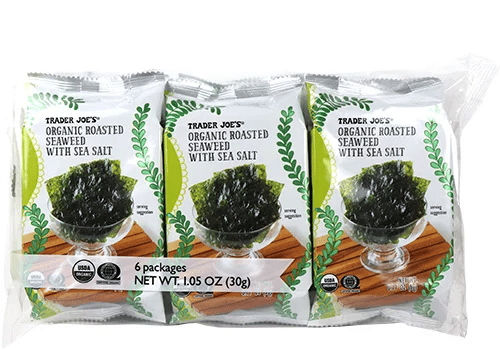
I can only speak to my experience and what I’ve gleaned from living in Korea for some time and working in the culture and with people here. There’s grit. There is an incredible energy that comes from Korea. The core incredible things about Korea and Korean cultural things that people latch onto these days have been around in Korea forever. There is also an incredible energy and a driving force about Korea and Koreans that have allowed us to create things at a scale, speed and at a quality that I think is hard to match anywhere around the world.
When we look at entertainment, tech or trends, Korea is always on the cutting edge of trends. There’s something within us that’s ambitious and always wants more. We want to do it right. When all these underlying factors bubble up together and dominate everything in culture, it’s a really cool moment. I’m in Korea right now, and seeing and hearing about all these new advancements, technologies and ideas that are coming out. It’s exciting to see what will happen as we continue to build incredible things for the world!
Jeanie: It is incredible! You speak on mental health. As a licensed therapist, I love seeing that because the stigma surrounding mental health is a big part of our community. What are some of your best practices on how people could talk about mental health with their families, friends, and in our community to break through that stigma?
Eric Nam: I’m no professional in mental health whatsoever, but what I’ve found to be incredibly valuable is to be willing to have those conversations in an open way, even if it’s not with family. Just saying to yourself, I’m dealing with this. Thinking inside, I think I have this or that or what am I struggling with? Then find the right person or communities even if it’s online to share it with and put it out there.
I feel like that’s one of the great things about being on the Internet. You have the world at your fingertips. Even if it’s anonymous or in a very quiet way, you can search for help or find somebody to talk to. Once you come to terms with it, then you can have those conversations in real life with your parents or your family or friends.
The other thing for me that I found to be very reassuring is watching and listening to other great people who have influence talk openly about it. I think that’s why my brothers and I started an application called Mindset. A big part of that is where celebrities and artists like me talk about anxiety or having bipolar disorder or a whole slew of whatever issues that you may be dealing with. I think that’s the best that I’ve done in trying to figure out how to normalize it and have those discussions and know that mental health is something that ebbs and flows, and you deal with it your entire life.
Jeanie Chang: The theme for this year’s 10th anniversary celebration gala is “Reclaiming Our Narrative, Redefining Our Future.” Eric, what’s that one challenge that you would like to give us, the Korean American community?
Eric Nam: I challenge you to look at what you can do. To start, look at yourself. How can you be the loudest, realist, most amazing Korean American version of yourself, to not only lift yourself up, but lift up the entire community. You being the most, authentic version of yourself, will do that naturally. I challenge you!
The 10th Anniversary CKA Gala is being held on October 23, 2021. It is a hybrid gala, with watch parties and regional dinners around the country. Other honorees include Daniel Dae Kim and Gold Medalist Chloe Kim, to name a few, and they may attend some of the watch parties! The gala is being co-hosted by Jeanie Chang and Chil Kong who will be live in a studio in Washington, D.C. For more information, please go to www.ckagala.org.

